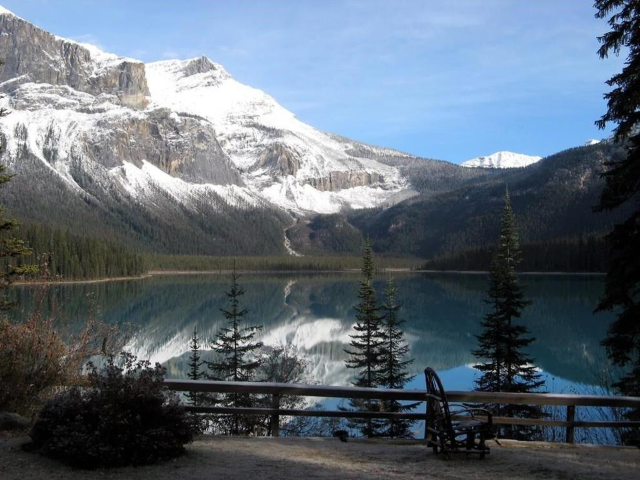
Emerald Lake in Yoho National Park is seen on a calm day in this Oct. 22, 2009 photo. THE CANADIAN PRESS/Bill Graveland/ WiG DjS
Parks Canada is implementing new measures to combat the spread of invasive species in several national parks in British Columbia (B.C.) and Alberta. These measures include the closure of all bodies of water in Kootenay and Yoho National Parks in B.C., along with restrictions on watercraft in Waterton Lakes National Park in Alberta. The aim is to mitigate the threat posed by invasive species to the delicate ecosystems of these parks.
The decision to close the lakes, creeks, and tributaries in Kootenay and Yoho National Parks until at least March of next year comes in response to the detection of the whirling disease parasite in fish within these water bodies. This parasite, known for its devastating effects on fish populations, was first discovered in Emerald Lake last year and subsequently found in other water bodies in the area, including Kicking Horse River, Wapta Lake, Finn Creek, Monarch Creek, and the confluence of Emerald River and the Kicking Horse River. In light of these findings, access to these water bodies was restricted for a five-month period starting last October. Now, Parks Canada has decided to extend these restrictions for an additional year to safeguard the diverse fish species inhabiting these waters, including various types of trout and Kokanee.
Jeanette Goulet, who oversees the aquatic invasive species program for mountain national parks, emphasized the role of boats in facilitating the transfer of invasive species between different bodies of water. She highlighted how boats can inadvertently carry mud, sand, sediments, and plant fragments from one location to another, posing a significant risk of spreading aquatic organisms. Goulet stressed the importance of thoroughly cleaning, draining, and drying watercraft to prevent the inadvertent transfer of invasive species.
Regarding the detection of whirling disease, Goulet explained that there is currently no specific treatment available for the disease, and removing infected fish from the water system is not a feasible solution. Instead, officials are exploring various strategies, such as allowing natural resistance to develop in fish populations or restocking with trout bred in hatcheries, to address the issue.
In Waterton Lakes National Park in Alberta, additional measures are being implemented to prevent the spread of invasive species, including zebra and quagga mussels. Starting April 1, non-motorized watercraft from outside park boundaries will no longer be permitted to enter the park. This measure aims to minimize the risk of introducing invasive species into the park's waters. Alongside this restriction, fishing for all species will be prohibited in flowing waters within the park, although fishing in park lakes will continue to be allowed under existing regulations.
Locke Marshall, the superintendent for Waterton Lakes National Park, emphasized the importance of these measures in safeguarding the park's ecosystem and downstream infrastructure from the threat of invasive species. He highlighted the significant costs associated with controlling infestations of zebra and quagga mussels, underscoring the need for proactive measures to prevent their introduction into the park's waters. Despite the implementation of a mandatory inspection station for non-motorized boats since 2021, Marshall expressed concern over the low participation rate among watercraft users, prompting the decision to ban such boats from entering the park altogether.
In conclusion, Parks Canada's decision to implement these measures underscores the organization's commitment to preserving the ecological integrity of national parks in British Columbia and Alberta and protecting them from the threats posed by invasive species.















